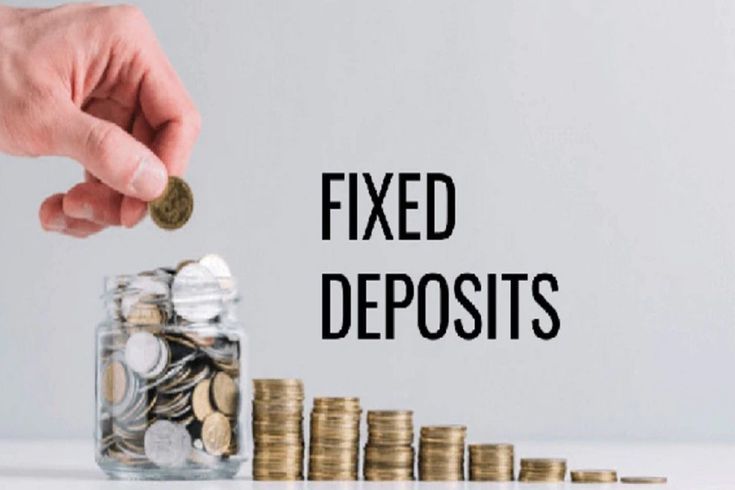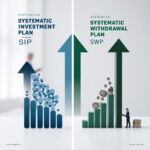Why SIP is a Smarter Choice Than FD for Long-Term Wealth Creation
When it comes to personal finance management, one of the most common debates revolves around SIP vs FD—whether you should stick to traditional Fixed Deposit (FD) investments or explore the potential of Systematic Investment Plans (SIP). Both of these investment options offer a way to grow your money, but they differ significantly in terms of returns, risk, and flexibility. If you’re looking for long-term investments that offer better returns and greater financial growth, SIP might be a better choice than FD.
In this blog, we will delve into why SIP is considered a more effective wealth creation tool compared to the traditional Fixed Deposit, and how it can help you achieve your financial planning goals.

A Systematic Investment Plan (SIP) allows you to invest a fixed amount in mutual funds regularly—usually monthly—providing the flexibility to start with small amounts. Unlike fixed income investments like FDs, SIPs are associated with mutual funds, which have the potential for higher returns based on the market’s performance. Over time, SIPs allow you to benefit from compounding and rupee cost averaging, making them an excellent choice for long-term investments.

What is a Fixed Deposit?
A Fixed Deposit (FD) is a traditional low-risk investment option where you deposit a lump sum amount with a bank or financial institution for a fixed tenure. In return, you earn a fixed interest rate over the chosen period. While FDs provide stable FD interest rates, the returns are relatively lower compared to the market-based returns of SIP investments.

SIP vs FD: Key Differences
1. Returns: SIP Investment Benefits
When comparing SIP returns to FD interest, SIP typically offers higher returns, especially over the long term. The stock market’s growth potential, as reflected in mutual funds, usually outpaces the relatively static interest rates offered by FDs. While FD interest rates are currently hovering between 5-7%, SIP returns have between 10-15% over long period of investment , depending on market conditions and the mutual fund’s performance.

2. Risk Factor: Low-Risk Investment Plans
One of the primary reasons why many opt for Fixed Deposit vs SIP is risk tolerance. FDs are considered safer as they offer guaranteed returns and are backed by the insurance up to a certain limit. However, SIP carries a certain degree of market risk since mutual fund performance is linked to stock market movements. But, if you invest in low-risk investment options like equity-oriented hybrid funds, the risk can be mitigated, especially over the long term. Plus, through SIP, you can manage risk more effectively by diversifying across various mutual fund schemes.

3. Liquidity: Plan Savings
FDs generally lock your money for a fixed period, which reduces flexibility. With SIPs, you can start and stop your investments at any time, making them more liquid and adaptable to your money management needs. You also have the option to invest smaller amounts on a regular basis, making it easier to plan your savings while maintaining flexibility.
4. Tax Efficiency: SIP Investment Advantages
While both FDs and SIPs have tax implications, SIPs offer tax advantages under Section 80C for ELSS (Equity Linked Savings Schemes), which are a type of mutual fund. On the other hand, the interest earned on Fixed Deposits is taxable according to your tax slab, which can eat into your returns. If you’re looking for tax-efficient investments, SIP can be a great way to save on taxes and grow your wealth.
Why SIP is a Better Investment Option
- Wealth Creation Over Time The power of compounding and the ability to invest small amounts regularly can lead to significant wealth creation over time. When compared to interest Calculation on fixed deposit , which yields a fixed return, SIP offers a chance to earn SIP returns that grow exponentially over the long term. As the saying goes, “The earlier you start, the more you benefit!”
- Best SIP Plans in India If you’re wondering about the best SIP plans in India, there are plenty of options that cater to different risk profiles and investment goals. You can choose from equity, debt, hybrid, or index funds depending on your financial goals and risk appetite. Consulting with financial planners and considering investment tips from trusted sources can help you choose the right SIP plan to align with your financial planning goals.
- Customization and Flexibility Unlike FDs, which require you to lock in a fixed amount of money for a predefined period, SIPs give you the flexibility to modify your monthly investment amount. Whether you want to increase your contributions as your income grows or switch to a different mutual fund scheme, SIPs offer the kind of flexibility that fixed income investments cannot.
- Lower Risk with Higher Returns Though FDs are seen as low-risk investment options, they often fall short when it comes to maximizing returns, especially in times of inflation. SIPs, with their exposure to the stock market, can deliver higher returns while still offering the ability to invest in low-risk investment plans like debt or balanced mutual funds.

Fixed Deposit vs SIP: Which is Right for You?
The choice between SIP vs FD boils down to your personal financial goals and risk tolerance. If you’re someone who prefers a guaranteed, risk-free return and doesn’t mind the lower growth, Fixed Deposit may be a good option. However, if you’re looking to create wealth, save for long-term goals like retirement, or even fund your child’s education, SIP offers the flexibility, higher potential returns, and tax benefits that FDs simply cannot provide.

How to Get Started with SIP
- SIP Calculation: You can easily calculate your potential SIP returns using online tools. This allows you to estimate how your monthly contributions can grow over time, helping you plan your finances more effectively.
- Investment Strategies: To maximize the potential of your SIP investments, it’s essential to implement sound investment strategies. This could involve diversifying your investments across different sectors, rebalancing your portfolio, and sticking to your long-term goals.
- Investment Advices: It’s always a good idea to seek investment advices from experienced mutual fund distributors. They can help you choose the right long-term investment options and tailor your strategy according to your unique financial situation.
Conclusion
When it comes to creating long-term wealth, SIP is undoubtedly a better investment strategy than FDs for most individuals. While fixed income investments like FDs offer guaranteed returns, they fail to keep up with inflation and don’t provide the potential for the kind of growth that SIPs can offer. By investing in SIP, you open the door to greater returns, better tax efficiency, and long-term financial growth.
If you’re ready to take control of your financial future and build wealth, consider switching from traditional Fixed Deposit investments to a disciplined Systematic Investment Plan today.


